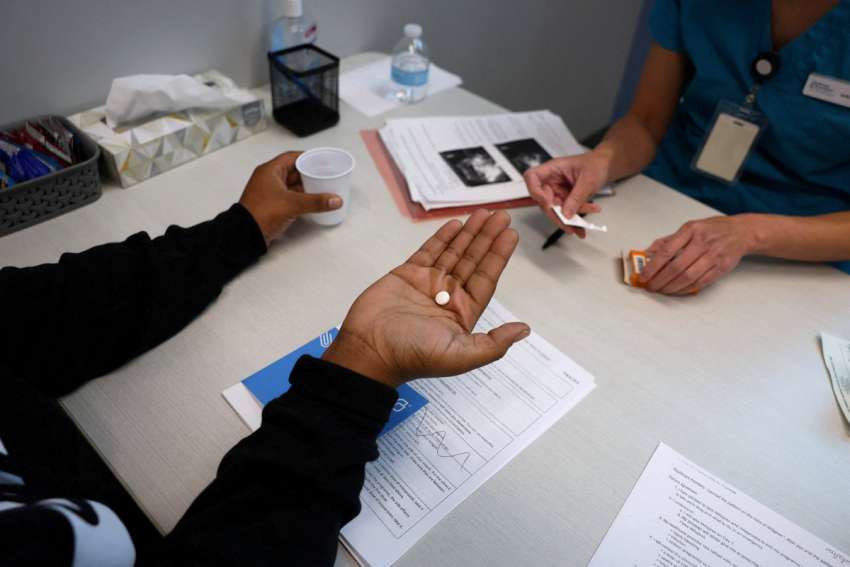Resolution 24-09-A, passed at the Feb. 8 annual meeting in Ottawa, says abortion rights, “are fundamental to bodily autonomy, and enable people to control their futures, shape their families, and fully participate in society.”
In an effort to achieve “reproductive justice” in Canada, the CBA is committed “to working with governments and other stakeholders to expand abortion access across Canada.”
The CBA is Canada’s largest professional organization for lawyers and, according to the CBA website, membership is mandatory for practicing lawyers in New Brunswick.
For Philip Horgan, lawyer and President and General Counsel of the Catholic Civil Rights League (CCRL), the CBA vote is not at all surprising. Horgan told The Catholic Register the CBA has been ideologically captured by abortion-rights activists for decades.
“The Canadian Bar Association has established once again that it chooses to exclude from its membership observant Catholics, faithful Christians, or people of other faiths or none, who accept the humanity of the unborn child.”
The wording of the CBA resolution forces Horgan to repeat that there is no enshrinement of a “right to abortion” in Canadian law.
“The preamble of the national resolution…misstates that constitutional ‘protection’ of abortion in Canada was established in the Morgentaler decision of 1988. The CBA position sets out an overreach of what that decision stated.”
Pro-abortion advocates have long accused the pro-life lobby of an intellectual rigidity that ignores the health and safety of women. It is this same so-called concern for health and safety that motivates the activism to expand abortion provision, as stated in the CBA resolution.
In May 2022, shortly after the leaking of the U.S. Supreme Court decision Dobbs v. Jackson Women’s Health Organization, the editorial board of Scientific American wrote that “restricting access to abortion goes against science, safety, and human dignity and portends a dangerous future.”
It has become a truism that a legal framework for abortion will lead to negative health outcomes for women.
In a preamble to a 2017 study on the efficacy of telemedicine-monitored medical abortion, researcher Kristina Danielsson writes, “without reasonable access to safe abortion services, women risk their health and their lives to obtain clandestine abortions from unqualified persons in unhygienic conditions.”
But the push to expand access to abortion has now become a matter of challenging not the legal framework, but the medical safeguards around the abortion pill. At the insistence of abortion-advocates, now the “unqualified persons” are not back-alley grubby grifters, but women self-administering the abortion pill.
When the abortion pill was approved for use in Canada in 2017 there were strict parameters around its use. Patients needed to have an ultrasound to determine fetal age and eliminate the possibility of an ectopic pregnancy and the drugs needed to be administered by a doctor. In 2019, Health Canada eliminated the requirement for an ultrasound. The push is on to “de-medicalize” the process. In a 2022 report from the Women’s Legal Education Fund, the authors say reproductive justice would be best served by the encouragement of “self-managed abortion.”
The report quotes a World Health Organization document that states that self-management of abortion “without direct supervision of a health-care provider […] can be empowering for individuals and help to triage care, leading to a more optimal use of health-care resources.”
But, despite claims of “safe and effective,” the use of the abortion pill is not without risk, and taken without medical support, it can only be riskier.
The FDA reports that since 2000, 32 women have died after using the abortion pill and, in the same period, 97 women were found to have an ectopic pregnancy. In 2022, a 19-year-old woman in Canada died from septic shock after taking the abortion pill. Just last month, the Journal of the Irish Medical Organization reported the case of 24-year-old woman brought to the Limerick Hospital with an ectopic pregnancy two weeks after taking the abortion pill. The authors reported that she arrived at hospital in a “serious and life-threatening” state that “could have been prevented by an ultrasound for location of the pregnancy.”
Dr. Will Johnston, Vancouver general physician and former chair of Canadian Physicians for Life, told that Register that, when it comes to the abortion pill “it is clear that there is double standard that is ideological rather than medical or scientific. Hypocrisy has lost its sting. It is just assumed that people will behave in a duplicitous and fallacious way to achieve ideological goals.”
As to the CBA, Horgan writes that, “the CBA, entirely populated with previously unborn children, has determined that its militant pro-abortion stance must be taken at all costs.”


